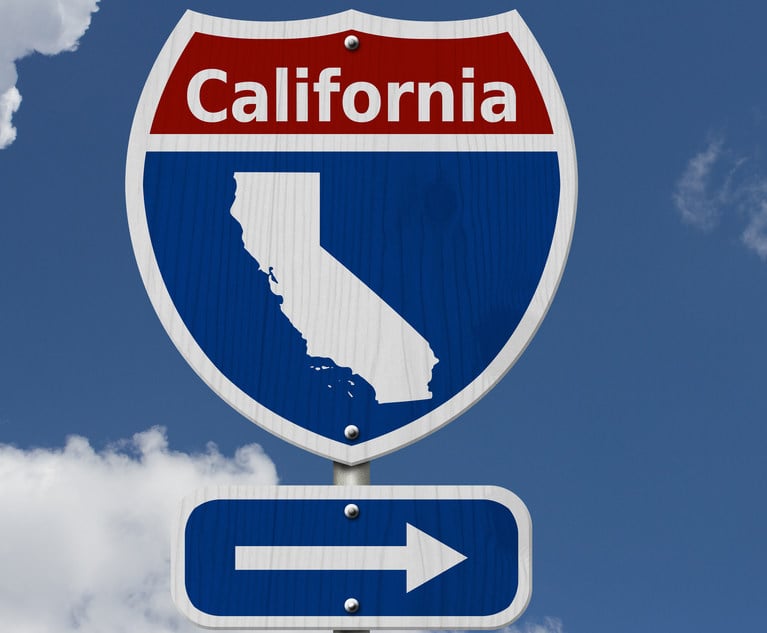The use of social media by surplus lines insurers and agents topromote business is advertising.
|Despite the casual nature of social media sites such as Facebookand LinkedIn, the use of social media is subject to state insurancelaws that govern advertising and unfair trade practices.
|Although people often think of surplus lines insurance as anunregulated part of the industry, the reality is that many stateshave specific advertising restrictions for surplus lines insuranceand unfair trade practices laws that apply. Those in the surpluslines market who take advantage of social media to promote theirinsurance business need to be aware of these laws.
|State insurance regulators have yet to issue any formalcompliance guidance on the subject. In their defense, they are onceagain left with the unenviable task of applying old laws to newissues and technology.
|The unfair trade practice laws of every state prohibit themaking of any unfair, false or misleading statement about insuranceand persons in the business. Any statement, including advertisingin any medium, is subject to this standard.
|Some, but not all, states further restrict the content ofadvertising by surplus lines brokers. Not too surprisingly, thelaws vary significantly among states and the laws of the states inwhich one does business should be reviewed.
|In states that specifically restrict surplus lines insuranceadvertising, a surplus lines broker is permitted to announce thebroker's ability to place surplus lines insurance and to provide ageneral description of the types of products that are available. Insome states, brokers are expressly prohibited from mentioning thename of any surplus lines insurer and may not identify specificproducts or coverages.
|The state of New York prohibits any producer or broker,including surplus lines brokers, from calling attention to anunauthorized insurer.
|Prohibitions against providing rate or premium information arefairly common.
|o New York also prohibits a surplus linesbroker from including a list of unauthorized insurers from whichthe broker may procure coverage.
|o Hawaii has a law prohibiting the publicationof any advertising in Hawaii for or on behalf of any unauthorizedinsurer.
|o In California, the name of a nonadmittedinsurer may be included in a surplus lines broker's advertisementso long as no products are mentioned and the unlicensed status ofthe insurer is disclosed.
|Of particular importance and what should be a best practice forbrokers as well as carriers is to disclose the states in which oneis licensed. This can be helpful in avoiding allegations ofsoliciting insurance in states in which one is not licensed oreligible to write.
|Also, some states have laws that purport to regulate anyadvertising that might be seen or heard in that state even if theperson is not doing business in that state. To avoid problems andto comply with specific disclosure requirements that exist in somestates, both surplus lines insurers and brokers should considerincluding disclosures about licensing on their social mediasites.
|Other commonly required disclosures include the full name of theinsurer, the states in which the insurer is licensed and thelocation of its principal place of business. A few states have veryspecific requirements for websites that regulators may try to applyto social media sites.
|For example, California wants insurers to include theirCalifornia license number.
|While these requirements may not apply to surplus lines brokersand perhaps not to surplus lines insurers, complying with theserequirements may avoid confusion and provide some measure ofprotection in the event of a regulatory inquiry.
|Facebook may have enough "real estate" on a page to includedisclosures, but a 140-character limit on Twitter presents achallenge. Insurance regulators have generally permitted requireddisclosures on websites to be made via a link. One can only hopethat they will go one step further and allow a page on LinkedIn orFacebook to contain a link to the entity's website. Of course, theappropriate disclaimers must actually be on the entity'swebsite.
|It goes without saying that every insurance agency and carriershould have policies and procedures for the development and reviewof advertising, and those may need to be revised if social media isused. Particular attention should be paid to the currency ofinformation on the sites and to third-party postings. Outdatedinformation and inappropriate third-party postings should beremoved.
|The ability of another person to post comments on what isessentially an advertisement of a broker or insurer creates somerisk. If a "fan" of an insurance agency posts a false or derogatorycomment about an insurer, is it attributable to the agency?
|Maybe, if insurance regulators take their lead from theFinancial Industry Regulatory Authority. Earlier this year, FINRAissued formal guidance regarding the use of social media by brokersand dealers in the securities industry (Regulatory Notice 10-06)and indicated that forwarding or commenting on a third-party postcould be an implicit endorsement of the content, thereby making itthe broker dealer's own statement.
|There are Facebook pages and websites for insurance agenciesthat contain the names of surplus lines insurers and specificproducts. While such content is not prohibited in all states,surplus lines insurers may want to limit the use of their names andproducts on social media sites that belong to brokers in order toprotect their brand and to avoid regulatory issues.
|Regulators will have to decide how to apply old laws to newtechnology when it comes to the use of testimonials and recordretention requirements for social media. The use of testimonials isregulated in many states, and it is not clear whether becoming afan of an agency will be considered a testimonial.
|It is also not clear whether regulators will expect the industryto maintain a copy of every change made to a LinkedIn page or everycomment on Facebook.
|Surplus lines brokers, like all insurance agents, shouldrecognize that using social media has the potential to createerrors and omissions exposures, particularly if clients andpotential clients are able to request coverage or changes via apost to a Facebook page. Agencies should consider a disclaimerprohibiting this practice, similar to voice mail messages thatremind callers that coverage cannot be bound by leaving amessage.
|Social media sites should be checked regularly for clientcommunications.
|The Dodd-Frank Wall Street Reform and Consumer Protection Actwill streamline certain aspects of doing business in the surpluslines market, but it does not exempt the surplus lines industryfrom advertising law and unfair trade practice laws. State lawswill continue to apply to advertising and the use of social mediaby surplus lines brokers and insurers.
|The simplest way to avoid potential problems when using socialmedia for an insurance business is to remember that it is formaladvertising and to treat it accordingly.
|Susan T. Stead is a partner and vice chair ofthe Insurance Regulatory and Transactional Practice Group at NelsonLevine de Luca & Horst, a national law firm focused on theinsurance industry. She may be reached at the firm's Columbus, Ohiooffice at [email protected].
Want to continue reading?
Become a Free PropertyCasualty360 Digital Reader
Your access to unlimited PropertyCasualty360 content isn’t changing.
Once you are an ALM digital member, you’ll receive:
- All PropertyCasualty360.com news coverage, best practices, and in-depth analysis.
- Educational webcasts, resources from industry leaders, and informative newsletters.
- Other award-winning websites including BenefitsPRO.com and ThinkAdvisor.com.
Already have an account? Sign In
© 2024 ALM Global, LLC, All Rights Reserved. Request academic re-use from www.copyright.com. All other uses, submit a request to [email protected]. For more information visit Asset & Logo Licensing.








